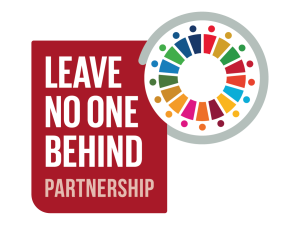Why Should Communities Collect their Own Data?
Before the pandemic, people with disabilities were already the most marginalized in many communities. Due to COVID-19 response measures, they have faced additional challenges specific to having a disability. For example, many have lost formal support by service providers or informal support from friends or relatives, due to physical distancing and movement restrictions. As found in a recent survey, this has left some without food, medicine and medical facilities, and unable to bathe, cook or eat.
For people with disabilities, community-driven data is now more important than ever. National and global responses to the pandemic must be fully inclusive, and this requires evidence on people’s needs. In Kenya, the 2019 census grossly undercounted the number of persons with a disability – recording 900,000 instead of 4 million. This is unlikely to have happened if communities had been involved.
Data help the government improve on public service delivery, as they are used to monitor and evaluate programs and projects. As the recipients of government programmes and interventions, communities themselves can best assess how those efforts affect their lives.
The data helps communities to take charge of the evaluation of initiatives that are meant to improve their lives. Further, the data helps them to hold duty bearers accountable.
Data collection needs to ensure data quality and accuracy, and community-driven data can help ensure both the quality of data and its fitness for use. Data collection teams have found it difficult to scale the traditional centralized approach in cases where the target population was not involved and fully consulted.
What is Pre-Competitive Data Collaboration?
The emergence of pre-competitive data collaborations is a significant development: pre-competitive data is information that can be shared without conferring a commercial advantage. As data volumes increase, along with pressure on resource availability, these collaborations become more prevalent.
The collection of effective community-driven data is highly dependent on the characteristics of each community. We have identified several success factors, including: early involvement of key stakeholders; a continuous community communication channel; clear incentives; and an effective governance model
Early stakeholder involvement applies both to data producers and consumers, and helps to gather insight into the basic questions of what they want to do, for whom, and what it will provide. White papers are an effective means to present these ideas and solicit opinions from the community. They can be used to establish an informal social contract for the community.
On community engagement, outreach activities are essential for promotion and feedback, and many communities have low levels of social media use. For a community to participate effectively, its members must be able to see the tangible benefits from the data activity. Recognizing contributions from community members through a formal feedback mechanism will help reinforce a “contribution culture” and directly increase output quality.
Finally, an effective governance structure is vital, because achieving high-quality community-driven data requires engaging the community within the governance process. Successful governance models for open communities follow less orthodox approaches in favor of meritocratic and autocratic principles. A meritocratic community is led by an elected leadership team or board. In the meritocratic mode appointments are made and responsibilities assigned to individuals/ organizations based upon demonstrated talent and ability. The community operates with an almost completely “flat” structure, which means that any participant willing to contribute can engage and gain influence in recognition of their contributions. By contrast, an autocratic community structure is controlled in a hierarchical fashion with a single person or organization leading the community, who has final say in decisions.
Together using bottom up, coordinated data and needs-driven approaches we can realize an empowered society of persons with disabilities with independent living.
This article will be cross-posted at the global SDG Knowledge Hub of IISD as part of a series of publications from the Leave No One Behind partnership.








